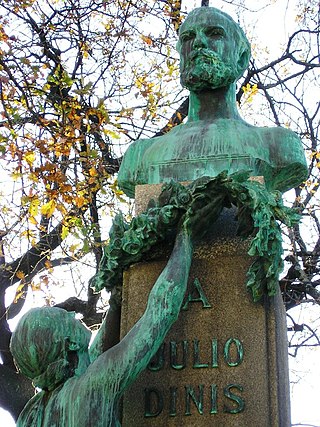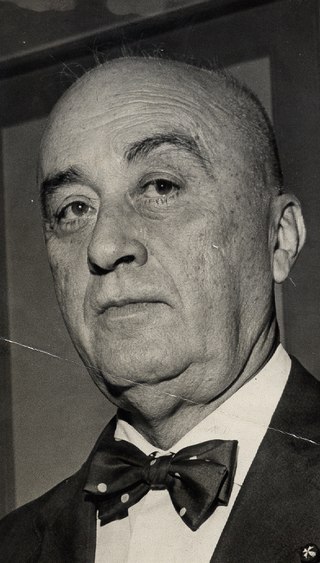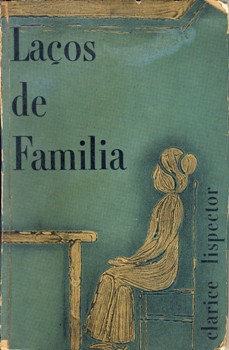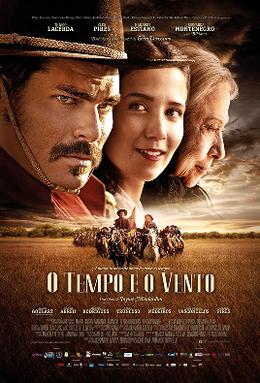
Latin America often refers to the regions in the Americas in which Romance languages are the main languages. It is "commonly used to describe South America, plus Central America, Mexico, and most of the islands of the Caribbean". In a narrow sense, it refers to Spanish America, and often it may also include Brazil. The term "Latin America" may be used more broadly than Hispanic America, which specifically refers to Spanish-speaking countries; and more narrowly than categories such as Ibero-America, a term that refers to both Spanish and Portuguese-speaking countries from the Americas, and sometimes from Europe. It could also theoretically encompass Quebec or Louisiana where French is still spoken and are historical remnants of the French Empire in that region of the globe.

Clarice Lispector was a Ukrainian-born Brazilian novelist and short story writer. Her distinctive and innovative works delve into diverse narrative forms, weaving themes of intimacy and introspection, earning her subsequent international acclaim. Born to a Jewish family in Podolia in Western Ukraine, as an infant she moved to Brazil with her family, amidst the pogroms committed by Soviet authorities after the First World War.

Érico Lopes Verissimo was an important Brazilian writer, born in the State of Rio Grande do Sul.
Linton Lomas Barrett, Ph.D. was an influential educator, administrator, diplomat, editor, Hispanist and translator of Romance languages.

Luís Fernando Verissimo is a Brazilian writer. Verissimo is the son of Brazilian writer Erico Verissimo and lived with his father in the United States during his childhood. Best known for his crônicas and texts of humor, more precisely satire of manners, published daily in several Brazilian newspapers, Verissimo is also a cartoonist, translator, and television writer, playwright and novelist. He has also been advertising and newspaper copy desk. He is also a musician, having played saxophone in a few sets. With over 60 published titles, is one of the most popular contemporary Brazilian writers.
O Tempo e o Vento is a trilogy of novels written by the Brazilian author Erico Verissimo. Confusingly, the first part of the series, O Continente, was translated as Time and the Wind, giving the impression that it is the whole work. Instead, the trilogy also includes O Retrato and O Arquipélago. Each novel is divided into volumes, with seven in total spanning across the books.

Latin American literature consists of the oral and written literature of Latin America in several languages, particularly in Spanish, Portuguese, and the indigenous languages of Latin America. It rose to particular prominence globally during the second half of the 20th century, largely due to the international success of the style known as magical realism. As such, the region's literature is often associated solely with this style, with the 20th century literary movement known as Latin American Boom, and with its most famous exponent, Gabriel García Márquez. Latin American literature has a rich and complex tradition of literary production that dates back many centuries.
McOndo is a Latin American literary movement that breaks with the magical realism mode of narration, and counters it with languages borrowed from mass media. The literature of McOndo presents urban Latin American life, in opposition to the fictional rural town of Macondo.

Júlio Dinis, pseudonym of Joaquim Guilherme Gomes Coelho was a Portuguese medical doctor and poet, playwright and novelist. He was the first great novelist of modern Portuguese middle-class society. His novels, extremely popular in his lifetime and still widely read in Portugal today, are written in a simple and direct style accessible to a large public.

In political science, the term banana republic describes a politically and economically unstable country with an economy dependent upon the export of natural resources. In 1904, American author O. Henry coined the term to describe Guatemala and Honduras under economic exploitation by U.S. corporations, such as the United Fruit Company. Typically, a banana republic has a society of extremely stratified social classes, usually a large impoverished working class and a ruling class plutocracy, composed of the business, political, and military elites. The ruling class controls the primary sector of the economy by way of exploitation of labour. Therefore, the term banana republic is a pejorative descriptor for a servile oligarchy that abets and supports, for kickbacks, the exploitation of large-scale plantation agriculture, especially banana cultivation.

Gustavo Adolfo Luiz Dodt da Cunha Barroso was a Brazilian lawyer, writer and politician associated with Brazilian Integralism and antisemitism. He was also known by the pseudonym João do Norte. Being considered a master of Brazilian folklore, he was the first director of the National Historical Museum and one of the leaders of the Brazilian Integralist Action, being one of its most prominent ideologists.

Noite (Night) is a novel written by Brazilian writer Érico Veríssimo in 1954.
Quis custodiet ipsos custodes? is a Latin phrase found in the Satires, a work of the 1st–2nd century Roman poet Juvenal. It may be translated as "Who will guard the guards themselves?" or "Who will watch the watchmen?".
The Adventures of the Red Airplane is a 1936 book for children by the Brazilian author Érico Veríssimo.

Family Ties is a 1960 short story collection by the Brazilian writer Clarice Lispector.

Time and the Wind is a 2013 Brazilian epic drama film based on a series of novels written by the Brazilian author Erico Verissimo. The film was directed by Jayme Monjardim and starring Thiago Lacerda, Marjorie Estiano, Fernanda Montenegro, and Cléo Pires.

Brazilian science fiction has been a part of Brazilian literature since the mid 19th century. The first works of Brazilian Science Fiction emerged in the decades following Brazil's independence. Brazilian science fiction has its roots in authors such as Augusto Emílio Zaluar in the novel O Doutor Benignus and Machado de Assis in the short story O Imortal (1882). The genre grew in popularity over the 20th century, reaching its first “golden age” in the late 1950s, bolstered by the work of publisher Gumercindo Rocha Dorea. Following the end of the military dictatorship in 1985, the genre has witnessed a renaissance, with an influx of new writers and diverse influences reshaping the genre.

The Royal and Venerable Confraternity of the Most Blessed Sacrament of Mafra, alternatively, the Royal and Venerable Brotherhood of the Most Blessed Sacrament of Mafra, is a public association of faithful of the Catholic Church, canonically established in the Basilica of Our Lady and Saint Anthony of Mafra, Portugal.

Andradas Street is located in the Brazilian city of Porto Alegre, in the state of Rio Grande do Sul. The stretch from Gasômetro to General Câmara was called Rua da Praia, and the stretch between General Câmara and Senhor dos Passos was called Rua da Graça.














